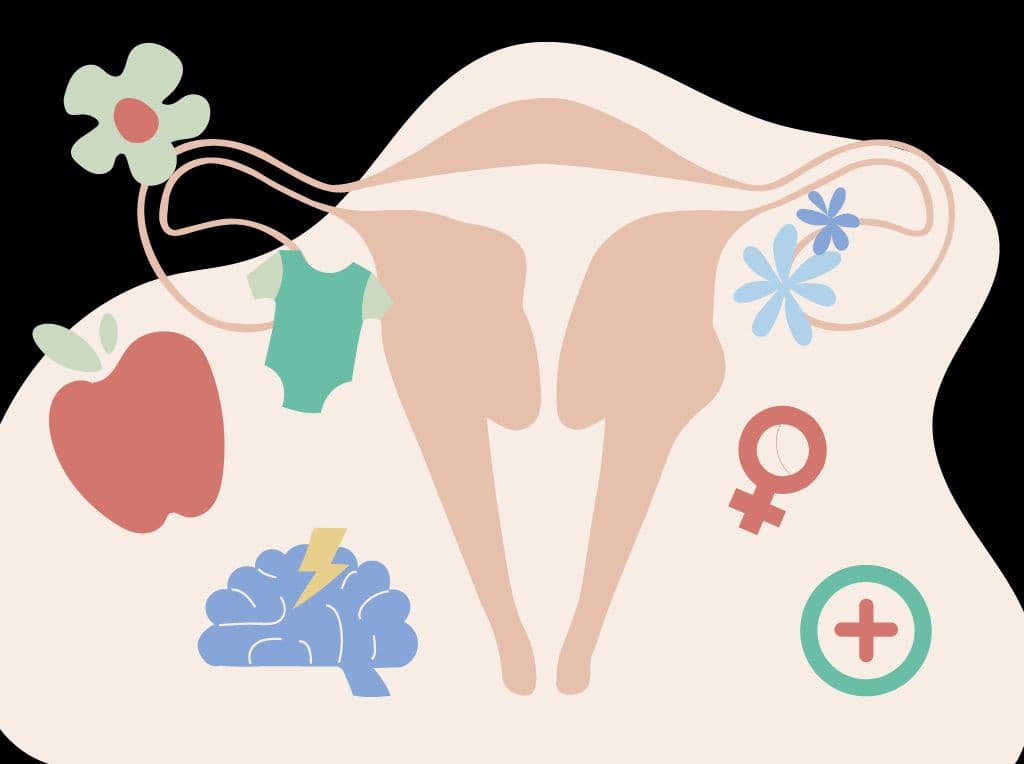This article is compiled by Sanjana Varma, a freelance writer at Proactive For Her.
What is postpartum anxiety?
Anxiety is a natural response for humans, especially after the birth of your baby. During this time, you will develop hyper-alertness and hyper-vigilance. You want the best for your baby and would move the earth and moon for it. Your anxiety may also result from the doubts that cloud your mind. What is the right way and wrong way of caring for your child?
Anxiety morphs into postpartum anxiety if it disrupts your day to day functioning. Postpartum anxiety disorder is a cousin to postpartum depression (PPD) that affects about 10 percent of new moms, according to the American Pregnancy Association. The telltale signs are excessive worrying, racing thoughts, and feelings of dread.
Postpartum Anxiety Causes and Risk Factors
As your pregnancy progresses, your body goes through intense changes till the birth of the baby. Your body acclimatizes itself to provide a safe haven for your baby till it is time for the baby to greet the world. These changes are mainly due to the surge of hormones. The common causes of anxiety after birth are due to:
- Hormonal shifts after giving birth
- Sleep deprivation
- The stress of taking care of the baby
- The relationship changes that occur after the birth of the baby
- Social pressure to be the “perfect mom”
Your risk for developing postpartum anxiety increases if you:
- Are very sensitive to emotional triggers
- Have a history of anxiety
- Have a history of OCD/Eating disorder
- Have lost a baby due to ill health
- Have a history of miscarriage or stillbirth
- Have given birth prematurely
Postpartum Depression vs. Postpartum Anxiety
Postpartum Depression (PPD) can cause mothers to experience extreme sadness or even disinterest in their newborn, while, postpartum anxiety symptoms manifest themselves mainly in the form of extreme anxiety towards the well-being of the child. You may constantly feel worried and on edge. Postpartum anxiety is the loss of the normal sense of balance and calm, and postpartum depression as a loss of heart. Postpartum anxiety is called ‘the hidden disorder’ because so few moms recognize it and it goes undiagnosed. It hasn't been discussed or studied much, even though it's a lot more common than postpartum depression. It is believed that a woman can have both PPD and postpartum anxiety simultaneously.
Postpartum Anxiety Symptoms
Keep in mind that most (if not all) new parents experience some worry. But the symptoms of postpartum anxiety disorder include:
- Constant or near-constant worry that can’t be eased
- Feelings of dread
- Sleep disruption
- Racing thoughts
- Fatigue heart palpitations
- Hyperventilation
- Sweating
- Nausea or vomiting
- Shakiness or trembling
- Chest pain
- Dizziness
- Intense fear of death for your baby
- Hot flashes
- Lack of concentration
There are a couple of even more specific types of postpartum anxiety such as :
- Postpartum panic disorder
- Postpartum obsessive- compulsive disorder (OCD)
Their symptoms match those of their non-postpartum counterparts, though may relate more specifically to your role as a new parent.
With postpartum OCD, you may have obsessive, recurring thoughts about harm or even death befalling your baby. With postpartum panic disorder, you can have sudden panic attacks related to similar thoughts.
For the majority of women, these symptoms kick in sometime between birth and baby's first birthday—but in some cases, they begin much earlier. For some, it may begin during pregnancy.
How long does postpartum anxiety last?
There's no definitive timeframe for postpartum anxiety, but the good news is that it isn’t permanent. Depending on how soon a mom gets treatment, recovery time can vary. Untreated moderate to severe anxiety can last indefinitely.
When to call the doctor?
You should consult with your doctor at the first signs of excessive worry, fear or dread after having a baby. If you're feeling overwhelmed, overly worried, panicky or feel like you’re losing control, then, consider discussing this with your doctor or your baby’s paediatrician as soon as possible.
Managing Postpartum Anxiety
Most mothers experience baby blues, the confusion and uncertainty that accompanies childbirth. It is likely to go away on its own within 2 weeks. Postpartum anxiety usually requires treatment. The treatment is tailored to the needs of the mother and the child respectively. The crucial step is to go to your doctor for postpartum checkups.
- Postpartum anxiety may be managed by:
- Going for cognitive behaviour therapy
- Practising mindfulness
- Practising exercise/yoga
- Joining group therapy sessions/personal sessions
- Medication that is safe for you and your breastfeeding baby
You must seek help if anxiety is disrupting your sleep or you're constantly preoccupied with worries. In fact, in some cases, if left untreated, can leave mothers dealing with a long term illness. With the right kind of treatment and the support of family members and friends, a new mom dealing with postpartum anxiety will get better in time.
Final Thoughts
Postpartum anxiety though common is not talked about much. It can be managed with the combination of therapy, support from the family and medication (if required). It is natural for you to feel worried about your child, but it shouldn’t stop you from enjoying the special moments with your little one. Here’s a toast to you and your little one(s)! You’ve got this!
Disclaimer - This information is provided for educational purposes and should not be construed as medical advice. Please consult with your healthcare practitioners before undertaking any changes in your diet or adding supplements.
Proactiveforher is a digital clinic for women, offering accessible, personalized, and confidential health-care solutions. We offer products and services for out-patient health concerns of Indian women, across their lifetime - from puberty to pregnancy to menopause. To know more on the sexual and reproductive health of women, visit https://www.proactiveforher.com/

